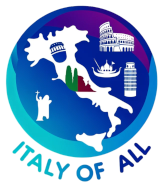The province of Catania, located on the eastern coast of Sicily, Italy, is a dynamic region known for its rich historical heritage, vibrant cultural life, and dramatic natural landscapes, including Mount Etna, one of Europe’s most active volcanoes. Catania is a key economic and tourist hub in Sicily, offering a blend of ancient traditions and modern vitality.
Geographically, Catania is dominated by the imposing presence of Mount Etna, whose fertile volcanic soils support a rich agriculture industry, particularly famous for citrus fruits, olives, and vineyards. The landscape varies from the sandy beaches along the coast to the rugged terrain of the Etna region and the lush plains that are ideal for agriculture.
Historically, Catania has a storied past that includes periods of Greek, Roman, Byzantine, Arab, and Norman rule, making it a melting pot of cultures and architectural styles. The city of Catania itself, founded in the 8th century BC by Greek settlers, has been destroyed and rebuilt several times due to volcanic eruptions and earthquakes. Its Baroque city center, rebuilt after the earthquake of 1693, is a UNESCO World Heritage Site, celebrated for its impressive architecture and urban planning.
Culturally, Catania is a center of art, music, and cuisine. The city is known for its lively festivals, such as the feast of Saint Agatha, the patron saint of Catania, which attracts thousands of visitors each February with its grand processions and ceremonies. The province is also home to numerous theaters, museums, and cultural institutions that reflect its rich artistic heritage and dynamic contemporary arts scene.
Cuisine in Catania showcases the diverse agricultural produce of the region, with a strong emphasis on seafood, citrus fruits, and vegetables. Local specialties include “pasta alla Norma,” named after the opera Norma by Catania’s famous composer Vincenzo Bellini, which features tomatoes, fried eggplant, basil, and ricotta salata. Another staple is “arancini,” fried rice balls filled with various ingredients such as meat sauce, mozzarella, or butter.
Economically, Catania is one of the major economic centers of Sicily. Its economy is driven by agriculture, particularly the production of oranges, lemons, and other citrus fruits, as well as by tourism, retail, and manufacturing. The presence of Mount Etna also contributes to its tourism sector, attracting scientists and tourists alike. In recent years, Catania has been developing its technology sector, supported by the presence of the University of Catania and several research institutions.
Despite challenges such as the risk of natural disasters from Mount Etna and the need for economic diversification, Catania continues to thrive by leveraging its cultural assets, historical sites, and agricultural products. Efforts to promote sustainable tourism and technology-driven economic growth are key to ensuring the long-term prosperity of the region.
Overall, the province of Catania offers a compelling mix of natural beauty, historical depth, and cultural vibrancy. Its ongoing commitment to cultural preservation and economic innovation ensures its continued importance as a major cultural and economic hub in Sicily and beyond.
Comuni in Catania Province:
- Aci Bonaccorsi
- Aci Sant’Antonio
- Aci Catena
- Adrano
- Belpasso
- Biancavilla
- Aci Castello
- Acireale
- Castel di Judica
- ** Bronte, CataniaBronzolo
- Caltagirone
- Castiglione di Sicilia
- Catania
- Camporotondo Etneo
- Calatabiano
- Fiumefreddo di Sicilia
- Gravina di Catania
- Maniace
- Maletto
- Mazzarrone
- Licodia Eubea
- Giarre
- Mascalucia
- Grammichele
- Mascali
- Linguaglossa
- Nicolosi
- Misterbianco
- Motta Sant’Anastasia
- Militello in Val di Catania
- Pedara
- Mineo
- Palagonia
- Mirabella Imbaccari
- Piedimonte Etneo
- Riposto
- Ragalna
- ** Ramacca
- Ranco Randazzo
- Raddusa
- San Cono, Catania
- San Michele di Ganzaria
- Santa Venerina
- Scordia
- Sant’Agata li Battiati
- San Pietro Clarenza
- Santa Maria di Licodia
- San Gregorio di Catania
- San Giovanni la Punta
- Sant’Alfio
- Viagrande
- ** Valverde, Sicily
- Tremestieri Etneo
- Trecastagni
- Vizzini
- Zafferana Etnea
